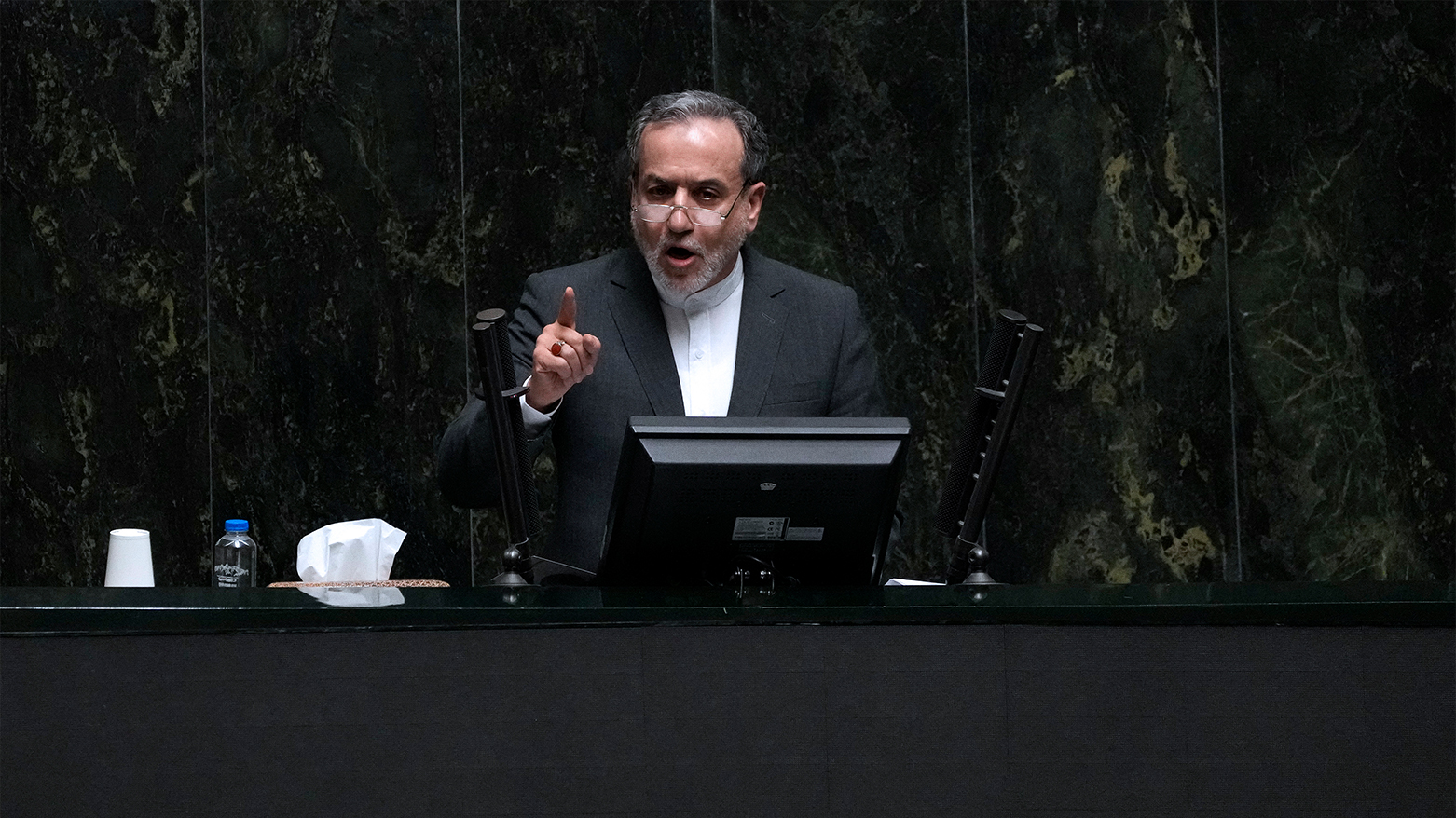Iran Reaffirms Nuclear Rights Amid U.S. Warnings of 'Grave Risk'
"[Iran] cannot compromise on the legitimate and legal right of the Iranian nation to benefit from peaceful nuclear energy—including uranium enrichment, which, according to the NPT, is granted to every member state," Iranian FM stated.

By Kamaran Aziz
ERBIL (Kurdistan24) – As diplomatic friction between Tehran and Washington continues to mount, Iran has reiterated its firm commitment to the peaceful use of nuclear energy under the Non-Proliferation Treaty (NPT), even as U.S. officials intensify warnings about the country’s nuclear activities.
According to a report by the Islamic Republic News Agency (IRNA), Iranian Foreign Minister Abbas Araghchi delivered a resolute defense of Iran’s nuclear rights during a meeting with representatives from the Pugwash Conferences on Science and World Affairs, hosted by the Atomic Energy Organization of Iran on Friday.
Speaking at the gathering, Araghchi emphasized that Iran, as a founding member of the NPT and the initiator of a proposed nuclear weapons-free zone in West Asia, has acted in good faith by engaging in indirect negotiations with the United States.
“The Islamic Republic of Iran is fully prepared to build confidence regarding the peaceful nature of its nuclear program,” he declared, “but it cannot compromise on the legitimate and legal right of the Iranian nation to benefit from peaceful nuclear energy—including uranium enrichment, which, according to the NPT, is granted to every member state.”
The Foreign Minister lamented the high material and human costs paid by Iranians to defend their right to nuclear development, citing decades of sanctions and the assassination of top scientists.
Araghchi underscored that as a nation that forbids the use of nuclear weapons, Iran would not tolerate being denied peaceful nuclear technology while remaining a signatory to international obligations.
In a stark contrast to Iran’s declarations, U.S. Secretary of State Marco Rubio, speaking on Thursday on Fox News’ “Hannity” show, issued grave warnings about Iran’s nuclear posture. According to the U.S. Department of State transcript of the interview, Rubio stated that Iran has effectively reached the threshold of becoming a nuclear weapon state, having enriched uranium to 60 percent purity. “Once you’re at 60, you’re 90 percent of the way there,” Rubio said, warning that Iran could achieve weapons-grade enrichment “very quickly.”
Rubio described the Islamic Republic as “too close for comfort” to nuclear armament and called the situation “a very grave risk.” He emphasized that Iran is openly enriching uranium and stockpiling materials while also possessing long-range missile systems capable of delivering nuclear payloads.
“The regime… is behind every problem in the region: Hezbollah, Hamas, the Houthis, militias out of Iraq and Syria,” Rubio stated, adding that the issue lies not with the Iranian people but with the clerical leadership in Tehran.
Back in Tehran, Araghchi responded to what he termed as “contradictory statements” from American officials, arguing that these inconsistencies undermine trust and complicate negotiations. He also warned that such rhetoric, compounded by the pressures of pro-Israel lobbying groups and internal divisions in Washington, obstructs meaningful dialogue. “Warmongering and anti-diplomatic factions within the U.S. are working in coordination to negatively affect the negotiation process,” he asserted.
Despite these challenges, Iran signaled readiness to continue working with the International Atomic Energy Agency (IAEA) to reinforce the peaceful character of its nuclear endeavors. Araghchi reiterated Iran’s strategic patience and commitment to diplomacy, even as it maintains its principled positions.
Meanwhile, Rubio stressed that while the U.S. administration remains open to diplomacy, the window is rapidly narrowing. “This offer won’t be around forever,” he warned, referring to President Donald Trump’s proposal for peace and prosperity contingent upon Iran abandoning nuclear ambitions. “They’ll either do it the easy way, or it will be done for them,” Rubio added.
The divergence between Iranian affirmations and U.S. apprehensions underscores the fragility of the diplomatic process. As both sides trade rhetorical volleys, the specter of miscalculation looms large. Araghchi’s dialogue with the Pugwash delegation serves as a signal of Tehran’s intent to frame its nuclear policy within the language of legality and scientific progress, even as Washington doubles down on a strategy of maximum pressure and regional containment.
Founded nearly seven decades ago, the Pugwash Conferences on Science and World Affairs remains a globally recognized platform for reducing armed conflict and promoting the peaceful application of science. Their engagement with Iranian officials highlights the enduring relevance of dialogue in one of the world’s most contentious security landscapes.
As U.S.-Iran tensions continue to escalate, the fundamental question remains unresolved: can mutual distrust give way to a sustainable diplomatic path—or will the nuclear file become the next flashpoint in a region already besieged by geopolitical unrest?